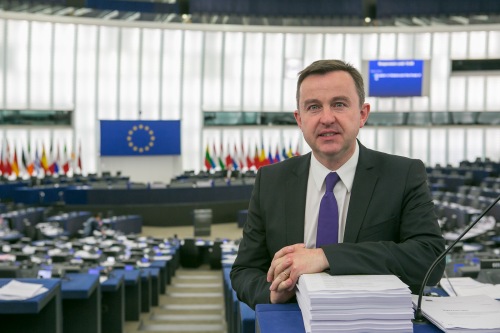Agreement reached on EU occupational pension fund Directive – Hayes
This agreement will pave the way for a strong internal market for pensions
Brian Hayes MEP, lead negotiator in the European Parliament for the occupational pension fund Directive (IORP Directive), today welcomed an agreement between Parliament and Council on the overhaul of EU pension rules saying that these new reforms will help pave the way for a strong internal market for occupational pensions.

“An agreement between the European Parliament and the Council has been reached on the revision of the IORP Directive following five months of difficult negotiation. This is an important piece of legislation that will affect pensioners and members of pension schemes alike but a key priority in this was to ensure that the rights and interests of these pensioners and scheme members were protected. The EU needs to be careful when we are dealing with people’s savings. We have established in the new legislation that members and pensioners must be informed about all relevant features of their pension schemes and should be consulted if there are decisions taken which will affect their pension pay-outs.
“IORPs, or occupational pension funds, are financial instruments that operate within an agreed social purpose in various EU Member States. This Directive is important for a small number of Member States, in particular Ireland, the UK, Germany and the Netherlands. Pension policy is understandably sensitive in these Member States and the Parliament and Council need to respect the fact that the evolution of pensions across the EU differs greatly. That being said, in agreeing to this new Directive we have struck the right balance between respect for different systems but also ambition for new cross-border pension schemes. In changing the rules on the establishment of cross-border pension schemes, I believe we have removed some of the obstacles to cross-border pension activity.
“We have first of all established clear procedure and timelines for how pension schemes can be transferred across borders. When authorising cross-border transfers, regulators in both Member States must authorise the transfer based on a strict set of criteria. The transfer must be approved by members and beneficiaries of the scheme. If there is disagreement between two regulators on whether the transfer should proceed, the new reforms have provided a mediation role for the European Insurance and Occupational Pensions Authority. These procedures have never been set out in EU legislation before and they will create certainty for the pensions industry when they want to establish cross-border schemes.
“Secondly, it was also agreed that we amend funding rules for cross-border funds to allow for a more lenient funding regime. While it has always been the case that cross-border funds must be fully funded at all times, we have now recognised that such funds can go into periods of underfunding. This is important because we need to recognise that being fully funded at all times is an impossibility, particularly given that we have just had a serious financial crisis where pension funds all over Europe were underfunded for a period of time.
“I am optimistic that this Directive will pave the way for a stronger internal market for pensions. But I also feel that this Directive can kick-start a real debate on pensions in many Member States, a debate that is very much needed all over Europe. People are living longer in Europe now and populations are ageing. It is anticipated that there will be one worker for every two pensioners in the EU by 2060; currently there are four pensioners for every worker. At the moment we don’t have the answers as to how we are going to fund pensions into the future. There is a pension time bomb coming down the tracks.
“The Directive is relevant for another reason – there is currently a major shift across Europe from defined benefit schemes, where the member is assured of a certain pension pay-out, to defined contribution schemes, where members assume the investment risk. The crisis has shown that the defined benefit model is not a sustainable way of delivering for all pensioners into the future.
“In Ireland, we have a well-developed occupational pension model. Every day in Ireland people put aside income to make adequate provision for their pension cover into the future. But we have to encourage people to save and manage these schemes to the highest standards. Less than 40% of Irish employees are covered by a workplace pension scheme.
“The negotiated text of this Directive will now go for a vote in the European Parliament which is currently set for October and it will also go for a vote in the European Council later this year.”
